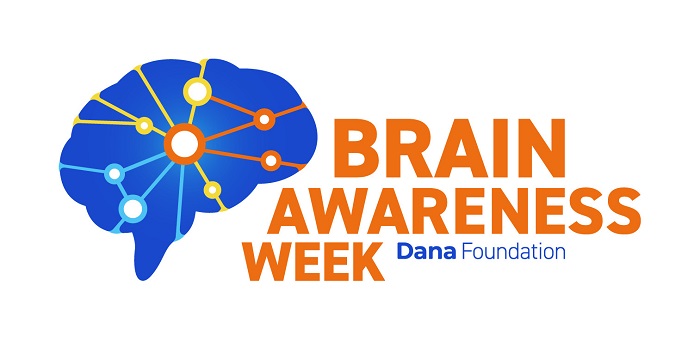March 13th-19th is Brain Awareness Week, an opportunity to learn more about the human brain – its biology, its development and function, health and disorders, and current research into this incredible organ. It is also a time for compassion and understanding for people who have suffered problems like Parkinson’s disease, stroke, epilepsy, and traumatic injury to the brain. Ongoing research into brain health has pushed back the boundaries of insight into neurological disease and impairment, improving treatment options and lifelong health.

In partnership with the Dana Foundation, the National Institutes of Health and over forty countries work to promote brain education. The official Brain Awareness Week website includes numerous resources – from games to information sheets to K-12 lesson plans – that can be used in or out of a classroom. The library also offers a plethora of materials about neuroscience for both education and research.
The brain is a complicated subject which can be approached from a number of angles. As a biological organ, the field of science provides the best information, and databases like BioOne and Biomedical & Life Sciences Collection are great places to start. If investigating brain function, psychology tools are ideal, like PsycINFO or ProQuest Psychology. And for investigating treatment of brain-related problems like cranial injury or Parkinson’s disease, medical resources like MedLine, and Journals@OVID offer the best avenue for exploration.

Regardless of which path research takes, the library offers a variety of books to help. Titles like The Brain: A Guided Tour of the Brain – Mind, Memory, and Intelligence from the Encyclopedia Britannica, Networks of the Brain by Olaf Sporns, Philosophy of the Brain: The Brain Problem by Georg Northoff, Raveling the Brain: Toward a Transdisciplinary Neurorhetoric by Jordynn Jack, Brain Signals: Physics and Mathematics of MEG and EEG by Risto J. Ilmoniemi, The Rubber Brain: A Toolkit for Optimising Your Study, Work, and Life by Sue Morris, or The Brain: What Everyone Needs To Know by Gary L. Wenk are all excellent sources.
Need help finding more sources about the brain? Ask us at iueref@iue.edu or click this button:


